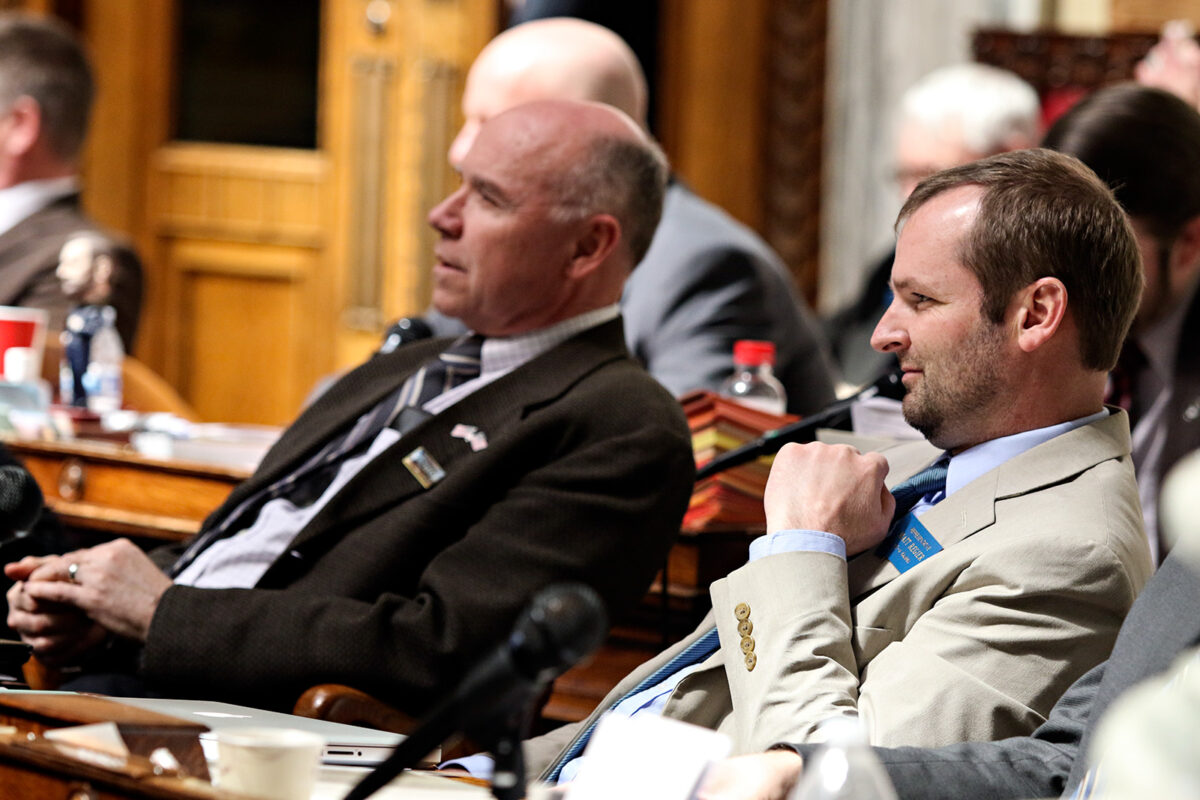Amicus Briefs Pile Up in Climate Change Lawsuit Following State Appeal to Supreme Court
Attorneys for Montana argue district court decision overstepped judicial boundaries, does not address alleged harms to plaintiffs
By Micah Drew
Attorneys for the state of Montana appealed a landmark environmental lawsuit to the Montana Supreme Court earlier this month, arguing that a district court judge erroneously struck down a provision of the Montana Environmental Protection Act (MEPA) in a ruling that favored 16 youth plaintiffs at the center of last summer’s climate change trial. The state believes the plaintiffs in Held v. Montana did not prove a direct link between an exception to MEPA, which prohibited government agencies from considering climate change impacts in permitting decisions, and their own physical and mental injuries.
“No single judicial action in Montana can meaningfully reduce climate change, and thus redress Plaintiffs’ injuries. That would require a fundamental transformation of the world’s energy system,” according to the brief.
Nine separate entities, including officers of the Montana Legislature, have filed amicus briefs in the lawsuit for the appellants.
In August, Lewis and Clark County District Court Judge Kathy Seeley issued her ruling in the nation’s first constitutional climate change trial, declaring that the young plaintiffs in Montana have a “fundamental constitutional right to a clean and healthful environment.” Her 103-page order overturned two laws enacted by the state’s Legislature in 2023 which made changes to MEPA by prohibiting state agencies from considering greenhouse gas emissions and climate change impacts while conducting environmental reviews.
The state’s Feb. 12 filing argues that the plaintiffs did not prove that declaring the MEPA provision unconstitutional would address their mental and physical injuries, because MEPA is not a permitting statute and actions taken by agencies in Montana cannot be directly tied to global climate change.
“Plaintiffs’ alleged mental health and physical injuries from climate change will not be redressed by declaring a MEPA provision unconstitutional, because no fossil fuel or greenhouse gas related project is permitted by MEPA, and Plaintiffs’ claims did not include a challenge to any substantive permitting statute. The statute challenged by Plaintiffs is a prohibition on state action; striking it down removes the prohibition but does not supply authority,” according to the brief.
During last summer’s trial, attorneys for the state repeatedly used the argument that MEPA was ancillary in nature and could not be used to approve or deny a fossil fuel permit, therefore was not a feasible method for addressing global climate change. The state used the same tactic during two attempts to put a stay on Seeley’s order, while also alleging the court was overreaching into legislative territory.
That argument was echoed in an amicus brief filed by the Montana Legislature, one of nine friends-of-the-court briefs filed so far by political entities and special interest groups in support of the state’s arguments.

Montana State House Speaker Matt Regier and Senate President Jason Ellsworth filed their amicus brief on behalf of the state Legislature, seeking to protect the “separation of powers among the legislative, judicial and executive branch.”
“Our brief argues that the District Court overstepped its judicial authority and improperly waded into environmental policymaking, which is the Legislature’s job under our state constitution,” Regier said in a press release.
In the brief, the Legislature asserts the Montana Constitution directs the Legislature to enact the “right to a clean and healthful environment,” and by nullifying a legislative statute, the district court overstepped its power.
“Forming an opinion of what is adequate or not to fulfill [the promise of a clean and healthful environment] goes beyond the Judicial Branch’s authority to interpret the law passed by the Legislature,” the brief states. “While the general promise to a clean and healthful environment is listed in Article II, and is thereby an inalienable right, it is not self-executing, meaning the Legislative Branch has the sole duty to provide for this constitutional directive.”
“Blocking certain projects because of greenhouse gas emissions could have devastating impacts on Montana’s ability to produce energy while having effectively zero impact on the climate,” Regier said in the press release. “The Held case could jeopardize our ability to keep the lights on and affordably heat our homes. The stakes are high for the wellbeing of Montanans.”
The Montana Chamber of Commerce, the Chamber of Commerce of the United States, and the Helena, Billings and Kalispell chambers also signed onto an amicus brief, as did the Frontier Institute and several fossil fuel industry groups, NorthWestern Energy, Treasure State Resources Association, and a coalition of 14 states, all led by Republican governors.
Roger Sullivan, a Kalispell-based attorney for the plaintiffs, told the Beacon that the legal team is looking forward to the appeal process before the Supreme Court.
“It’s really a wonderful opportunity to have the highest court of Montana review the trial record of this proceeding,” he said. “Legal rulings are predicated on these findings of fact which are unassailable, and we had the most extraordinary and qualified witnesses establish the facts about how Montana’s practices, and these statutes in particular, are harming Montana’s youth and the climate.”
The full opening briefs by the state of Montana, the state agencies and governor can be read below.